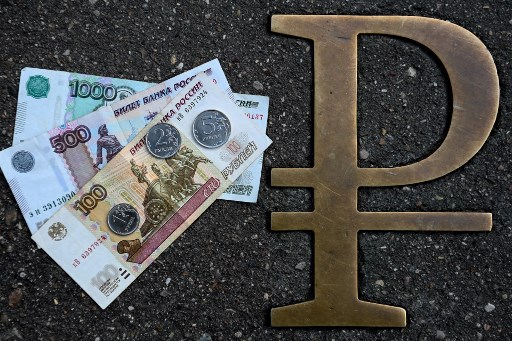
403
Sorry!!
Error! We're sorry, but the page you were looking for doesn't exist.
Fears mount as West considers confiscating Russian assets to help Ukraine
(MENAFN) As efforts intensify in Western circles to explore avenues for confiscating Russian assets frozen within their jurisdictions, a growing chorus of experts and analysts is sounding alarms over the potential ramifications of such actions. While the objective behind this move is to utilize the seized funds to support Ukraine's defense and reconstruction efforts in the wake of the Russian-Ukrainian conflict, critics warn that this approach may pose significant challenges to the international financial system and erode trust in the West's adherence to established legal and regulatory frameworks.
The frozen assets, estimated to be around USD300 billion, encompass various financial instruments such as bonds and securities, which were previously invested by the Russian Central Bank. Additionally, high-value assets including properties, yachts, and private aircraft belonging to prominent Russian individuals subjected to Western sanctions have also been targeted. This concerted effort by the European Union, the United States, Japan, and Canada stems from their imposition of sanctions following the outbreak of the Russian-Ukrainian war on February 24, 2022.
Of particular concern is the potential disruption caused by the seizure of these assets, which could set a precedent for circumventing established international financial laws and standards. This, in turn, risks deterring foreign investors and nations from engaging in financial transactions and investments with Western countries, thereby undermining their economic credibility and attractiveness as investment destinations.
The scale of frozen assets is significant, with approximately USD6 billion held in the United States and the bulk situated in Europe. Notably, a substantial portion of these assets is housed within the Euroclear platform in Belgium, a renowned international settlement and clearing system. The complex legal and logistical challenges associated with the confiscation process underscore the delicate balance between upholding international norms and addressing pressing geopolitical concerns.
As discussions and deliberations continue within Western corridors on the fate of these frozen assets, stakeholders grapple with the implications of their decisions on global financial stability and diplomatic relations. The outcome of these deliberations will likely shape the future trajectory of international financial governance and influence perceptions of Western leadership in navigating complex geopolitical crises.
The frozen assets, estimated to be around USD300 billion, encompass various financial instruments such as bonds and securities, which were previously invested by the Russian Central Bank. Additionally, high-value assets including properties, yachts, and private aircraft belonging to prominent Russian individuals subjected to Western sanctions have also been targeted. This concerted effort by the European Union, the United States, Japan, and Canada stems from their imposition of sanctions following the outbreak of the Russian-Ukrainian war on February 24, 2022.
Of particular concern is the potential disruption caused by the seizure of these assets, which could set a precedent for circumventing established international financial laws and standards. This, in turn, risks deterring foreign investors and nations from engaging in financial transactions and investments with Western countries, thereby undermining their economic credibility and attractiveness as investment destinations.
The scale of frozen assets is significant, with approximately USD6 billion held in the United States and the bulk situated in Europe. Notably, a substantial portion of these assets is housed within the Euroclear platform in Belgium, a renowned international settlement and clearing system. The complex legal and logistical challenges associated with the confiscation process underscore the delicate balance between upholding international norms and addressing pressing geopolitical concerns.
As discussions and deliberations continue within Western corridors on the fate of these frozen assets, stakeholders grapple with the implications of their decisions on global financial stability and diplomatic relations. The outcome of these deliberations will likely shape the future trajectory of international financial governance and influence perceptions of Western leadership in navigating complex geopolitical crises.

Legal Disclaimer:
MENAFN provides the
information “as is” without warranty of any kind. We do not accept
any responsibility or liability for the accuracy, content, images,
videos, licenses, completeness, legality, or reliability of the information
contained in this article. If you have any complaints or copyright
issues related to this article, kindly contact the provider above.


















Comments
No comment